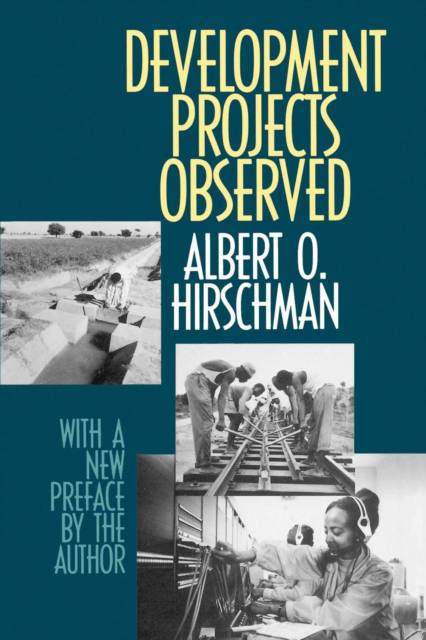
- Afhalen na 1 uur in een winkel met voorraad
- Gratis thuislevering in België vanaf € 30
- Ruim aanbod met 7 miljoen producten
- Afhalen na 1 uur in een winkel met voorraad
- Gratis thuislevering in België vanaf € 30
- Ruim aanbod met 7 miljoen producten
Omschrijving
The experience accumulated in the wake of more than two decades of sustained effort to promote growth and change in the low-income countries presents a rich field for scholarly inquiry and new insights into the development process. The success and failures of such projects, the new skills and attitudes they impart, and the internal tensions they sometimes generate obviously have an important bearing on the next stages of a county's development effort. Yet little has become known about these truly formative experiences which are due to the behavior--and misbehavior--of development projects. In this recent volume, Professor Albert O. Hirschman turns his attention to the ways in which decision making is molded, activated, or hampered by the specific nature of the project that is undertaken; for example, the establishment and operation of a pulp and paper mill in east Pakistan, an irrigation project in Peru, railway expansion in Nigeria, and other development undertakings. In some parts of the present inquiry Hirschman elaborates on his earlier writings in this series; and occasionally, he qualifies or modifies his previous conclusions; the bulk of the study explores new territory.
"Specificaties
Betrokkenen
- Auteur(s):
- Uitgeverij:
Inhoud
- Aantal bladzijden:
- 218
- Taal:
- Engels
Eigenschappen
- Productcode (EAN):
- 9780815736516
- Verschijningsdatum:
- 11/04/2002
- Uitvoering:
- Paperback
- Formaat:
- Trade paperback (VS)
- Afmetingen:
- 154 mm x 230 mm
- Gewicht:
- 326 g

Alleen bij Standaard Boekhandel
Beoordelingen
We publiceren alleen reviews die voldoen aan de voorwaarden voor reviews. Bekijk onze voorwaarden voor reviews.











